
Digital Research Initiative
The Digital Research Initiative is comprised of an inclusive group of forward-thinking individuals that seek to inspire innovation by leveraging technology and data resources to connect students, faculty and employees with communities through partnerships with internal and external members.
Interested in working with us? Complete our collaboration request form and let’s connect!
Goals of the initiative
The objective of the Digital Research Initiative is to provide students with an extraordinary learning experience by creating work-integrated learning and research opportunities that promote meaningful social and economic benefits to our communities.
The initiative is anchored to the academic curriculum through capstone or technical projects. Students participate in a broad spectrum of applied research projects during their studies, including those led by industry partners with guidance and oversight from Georgian faculty and employees.
This initiative creates a community of inquiry around digital technology. It provides opportunities for members to connect, share and exchange ideas and resources.
How we can help
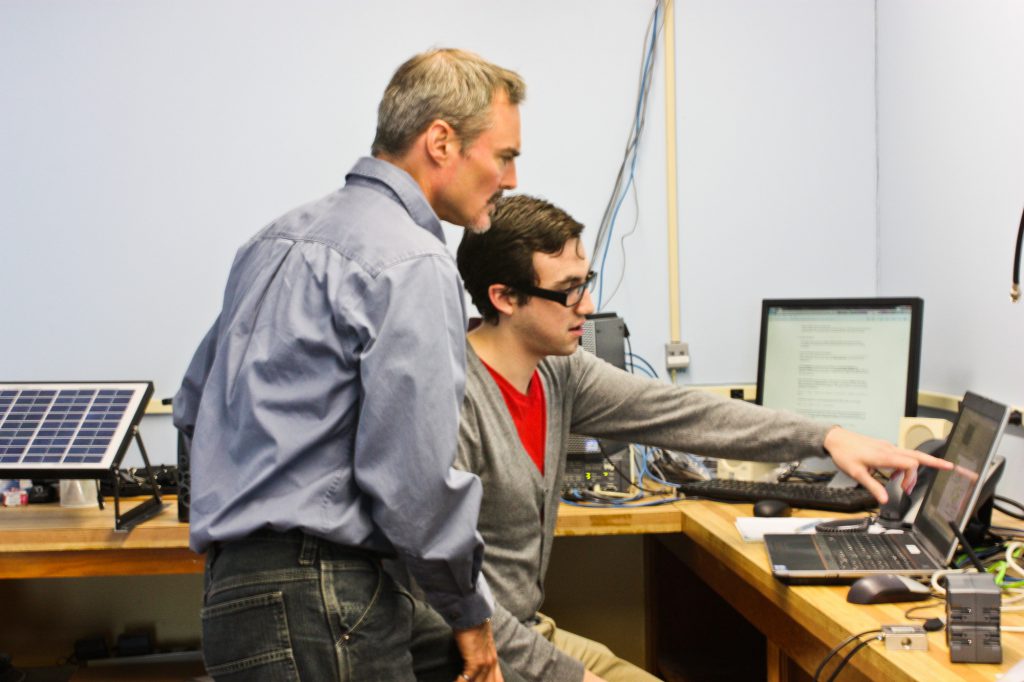
About the initiative
The Digital Research Initiative establishes a community of interest around digital technology, with a focus on solving real-world challenges while simultaneously supporting and enriching our community.
We offer subject matter expertise, project management and resources to help scope, design and create your proof-of-concept digital solution.
The initiative is sponsored by the Design and Visual Arts and Computer Studies portfolios, and supported by the Research and Innovation department at Georgian.
Faculty and employees within this portfolio also work in conjunction with other academic areas across the college.
What are digital research projects?
Digital research projects are challenges presented by industry partners. Students from a variety of programs work collaboratively to solve these challenges. These challenges can be captured as part of their academic capstone activities to worked on by our student research team.
Our student teams can help you with:
- 3D models and simulation; augmented reality (AR) and virtual reality (VR)
- artificial intelligence (AI)
- data analytics
- market research
- mobile applications
- web and software development
Research process
We typically start projects in September, January or May. Most project phases are scoped out over one or two academic semesters (four to eight months) with an opportunity to continue additional phases, depending on the complexity of the project.
Note about intellectual property (IP): All IP generated during the course of a project stays with the community partner.
Prior to starting
- Non-disclosure agreement signed
- Signed collaboration agreement
- Kick-off meeting
- Requirement gathering
During the project
- Weekly/biweekly progress meetings
- Feedback during the project
- Access to our shared communication tools
- Meeting minutes
After the project
- Hand over the deliverables
- Knowledge transfer sessions
- Future relationship building
- Opportunity to start a new project phase
Projects by the numbers
Collaboration request
Interested in working with us?
Fill out our online form and tell us about your project
- Simply access our form and provide some details about your project.
- We’ll review your request and get back to you within a couple of business days to discuss next steps.

Events
As part of our digital research community, we host a number of public events to disseminate knowledge and form communities of interest around particular topics.
Speaker Series
Upcoming events
Check back soon for information on our next Speaker Series!
Past events
Hosted on:
May 31
Hosted by:
Chris Naismith
About this event:
Want to maximize your impact as a Junior Developer? In this session, Front-End Engineer, Mentor and Loonie Engineering podcaster Chris Naismith shared tips and tricks for making a big impact as a junior developer. The session was followed by an interactive question and answer (Q&A) session.
Hosted on:
May 23
Hosted by:
Ross Bigelow
About this event:
Interested in learning more about ChatGPT and how generative AI models work? What does this new technology mean, and how can it shape the future? In this session, Ross Bigelow, Program Coordinator, Artificial Intelligence – Architecture, Design, and Implementation described what these models are, how they work, and how you can use them. Ross also outlined ways that generative AI can influence and transform industries.
Hosted on:
March 22
Hosted by:
Scott McCrindle
About this event:
This session offered an inside look at the frameworks and technologies behind efforts to determine how much emissions can be avoided through the use of smart grid technologies like utility-scale batteries, photo-voltaic solar arrays, and electric vehicle chargers. Scott McCrindle from Georgian’s Research and Innovation department shared how he’s working with a local utility to account for and report on the greenhouse-gas impacts of a smart grid project in Parry Sound.
Hosted on:
Feb. 15
Hosted by:
Andrew Clarkson
About this event:
Our first Speaker Series featured Andrew Clarkson. Andrew is a full-stack developer, co-host of Loonie Engineering — a podcast focusing on Canadian software engineering — and a self-described “junior dev hype man”! During the session, Andrew discussed his experience as a full-stack developer, his insights and tips for landing your first job, as well as some fun side projects he’s been working on.
Featured projects
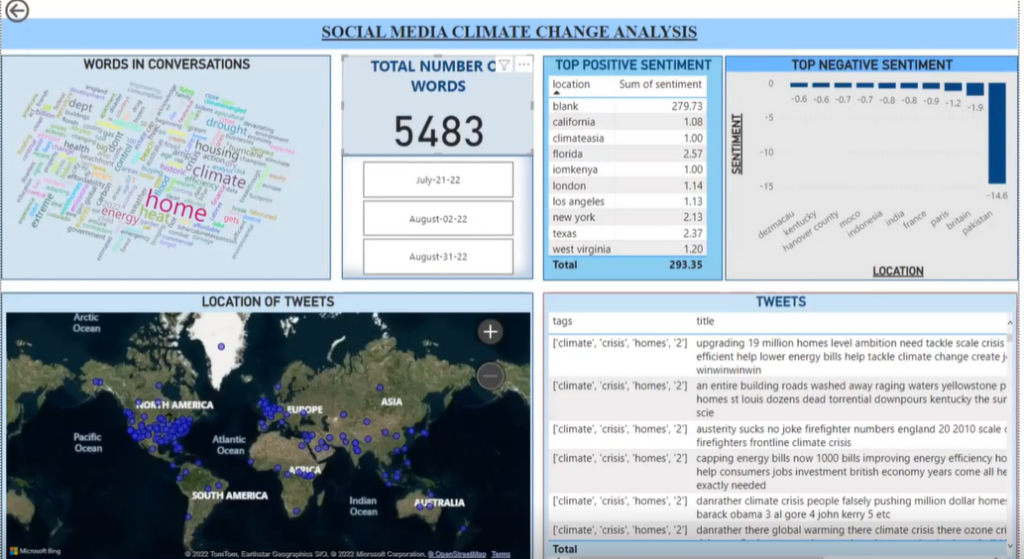
Ada Analytics
This project used AI to analyze social media posts to determine what people concerned about impacts with the hope of better understanding of local sentiment and fuel effective decision-making for other projects. The result will help us research the audience with more clarity and engage with it.
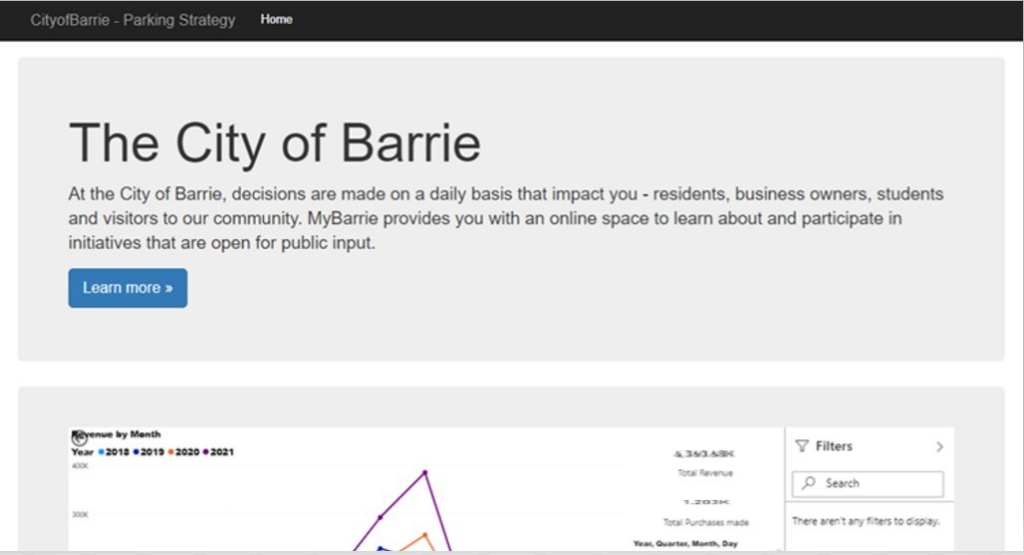
City of Barrie
Parking data for the municipal paid parking areas resides in a variety of sources. By creating and executing a plan to gather this data and bringing it into a unified view via dashboarding and reporting, it can assist with future planning and customer service enhancements.
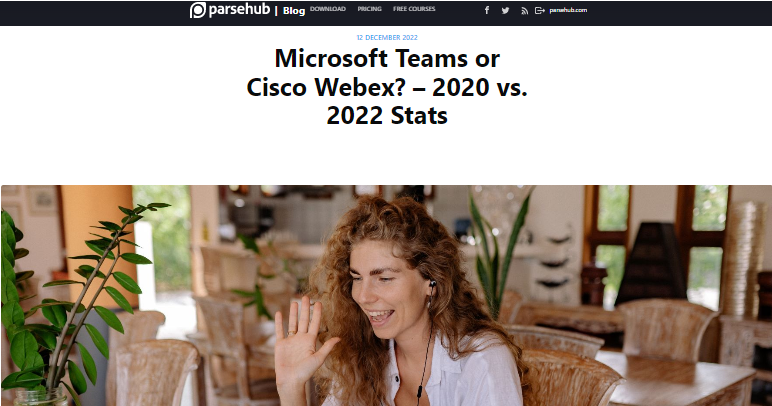
ParseHub
ParseHub performs research and data analysis on any data-related topic. These pieces seek to show the power of web scraping and data analysis while establishing ParseHub as a publisher of interesting data analysis research.
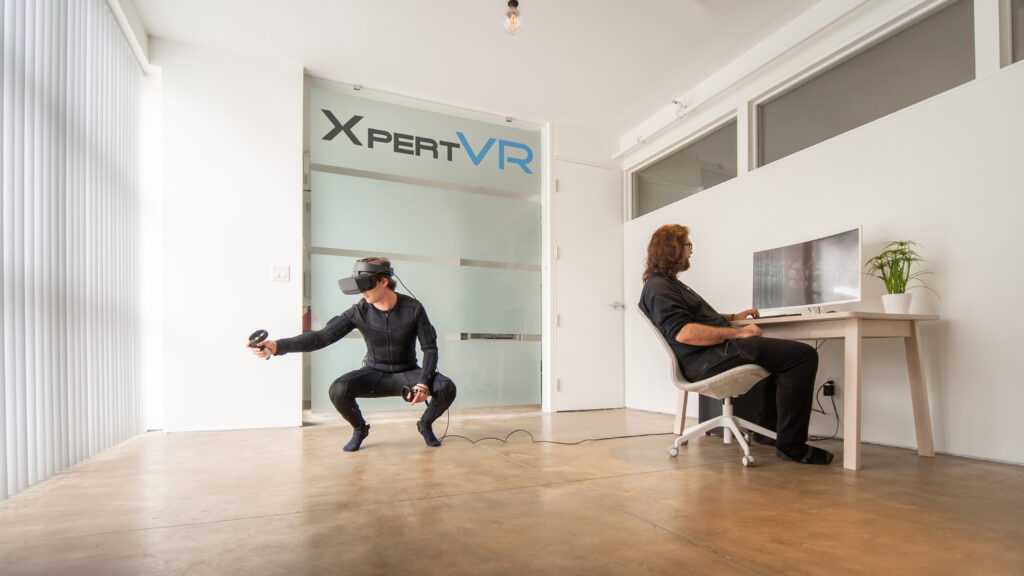
XpertVR
The goal of this project is to build a conversation situations AI that will be used in different life scenario as interrogation, canvassing, and conflict de-escalation. The project investigates different natural language generation models for integration into XpertVR’s VR simulation application.
Digital research team
Our team is comprised of a passionate group of individuals that are working to support student learning and our community partners.

Ross Bigelow
Ross Bigelow is the co-ordinator of the Artificial Intelligence – Architecture, Design, and Implementation program at Georgian, and the Honours Bachelor of Science in Computer Sciences Degree with Computer Programmer Diploma Lakehead-Georgian program. With a passion for building connected solutions, Ross’ research spans multiple disciplines including smart manufacturing and digital health care.

Jessica Gilfillan
Jessica Gilfillan is the co-ordinator of the Mobile Application Development program at Georgian. Jessica has a passion for design, user experience and making technology accessible.
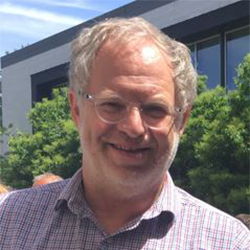
Dr. Richard Rinaldo
Richard Rinaldo is the co-ordinator of the Big Data Analytics and Research Analyst programs at Georgian. With a passion for community and social services, Richard leverages his background in market research, survey design and customer insight to create data-driven solutions.
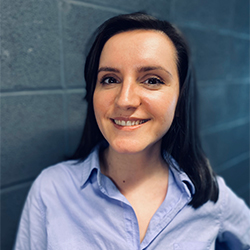
Brunilda Xhaferllari
Brunilda Xhaherllari is the Project Analyst with the Research and Innovation department at Georgian. She specializes in liaising with industry partners and working with project teams to identify the scope, plan and execution of industry projects.